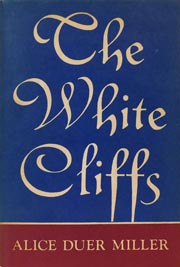
|
Itsas-malda zuriak
XLIX
Kanpotar illezkorren batzuek gure aberrira etorriko balira Eriotzaren berri jakin eta nola ulertu Doakabe umeak geranok — biotz alai arnasa Neurtzen degula — eriotzaz arduratu gabe. Orrela, guda tarteko urte oietan Lurralde zoriontsuagoak begira egitean Beren begietan sartu, ikusiaz Ostrukaren antzera — burua ondar barruan daukagula.
Gaztediak burrukarik ez egitea erabakiaz, Guztia ongi zijoala aopetik agintariak esanaz, Alemania, onbera, gaizki artutako erria, Muga barruetan, Errusia, ekinaldian Bere gaizkapena lortzeko. Espainia berriz, ai Espainiak Pake garaian Ingeleterra’tik erosiko! Nik berriz, entzun eta sinestu — Biotzean izu-ikara, baņan sinestu. Begiak itxi, beldurra ez zedin agertu. Ezaguna zitzaidan neke larria Izkutatu — ez negoen bakarrik.
Askoek baņo geroago, batzuen aurretik Zotza egiņa zegoela — guda zetorrela; Gauak joan, gauak etorri, biotza leer zorian Semeak noiz esango, ba’zijoala, Aitaren bide berdiņa artu bearrean zegoela. Eguna urbiltzean ez negoen babestua Ez ta ere gerturik — Itz ero basatiak Aotik irten —”Ene seme, semetxoa, Zuk ere Ingeleterran alde odola eman bear?” Irripar egiņaz: “Ez al du ori merezi, Nere eginbidea ba da?” Esan zun. John’ek baiezkoa esango, baņan, John ilik zegoen.
XLIX If some immortal strangers walked our land / And heard of death, how could they understand / That we—doomed creatures—draw our meted breath / Light-heartedly all unconcerned with death. / So in these years between the wars did men / From happier continents look on us when / They brought us sympathy, and saw us stand / Like the proverbial ostrich—head in sand— // While youth passed resolutions not to fight, / And statesmen muttered everything was right— / Germany, a kindly, much ill-treated nation— / Russia was working out her own salvation / Within her borders. As for Spain, ah, Spain / Would buy from England when peace came again! / I listened and believed—believed through sheer / Terror. I could not look whither my fear / Pointed—that agony that I had known. / I dosed my eyes, and was not alone. // Later than many, earlier than some, / I knew the die was cast—that war must come; / That war must come. Night after night I lay / Steeling a broken heart to face the day / when he, my son—would tread the very same / Path that his father trod. When the day came / I was not steeled—not ready. Foolish, wild / Words issued from my lips—‘My child, my child, / Why should you die for England too?’ He smiled: / ‘Is she not worth it, if I must?’ he said. / John would have answered yes—but John was dead.
Itsas-malda zuriak |